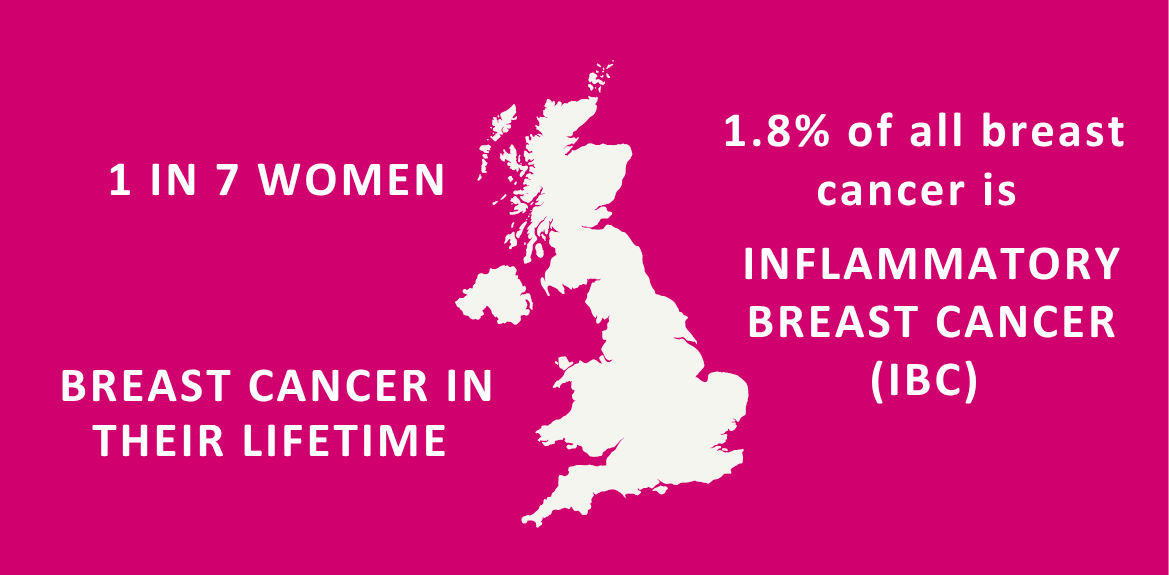What is Inflammatory Breast Cancer?
Inflammatory Breast Cancer (IBC) is a rare and aggressive form of breast cancer.
It is not usually detected by mammogram and often occurs prior to routine screening age recommendations for breast cancer (every three years from age 50 to 71 in the UK).
It makes up only around 1.8% of all breast cancer diagnosed in the UK.
Symptoms of IBC
The breast may start off as pink and become progressively redder or even purple as the tumour progresses. IBC is not just in the skin, it is scattered throughout the breast lobules or ducts and nodes. The invasive nature of IBC allows it to infiltrate the skin and produce the visual symptoms of IBC by blocking the lymphatics of the breast with cancer cells
Staging of IBC
Staging describes the size of the cancer and how far it has spread. It helps guide treatment and prognosis.
How staging is decided
Doctors look at:
Tumour size
Lymph nodes (whether they contain cancer)
Spread to other parts of the body (metastasis)
Number staging (0 to 4)
Stage 0: DCIS (ductal carcinoma in situ).
Stage 1: Small tumour. No cancer in armpit lymph nodes.
Stage 2: Larger tumour and/or limited spread to nearby lymph nodes.
Stage 3: “Locally advanced” – cancer may involve the breast skin or chest wall and/or multiple lymph nodes.
Stage 4: Cancer has spread (metastasised) to other parts of the body.
IBC usually affects most of the breast and the skin, so it is not typically staged as early-stage. It is staged as:
Stage 3B: Spread to nearby tissues such as the breast skin or chest muscle; may involve armpit lymph nodes.
Stage 3C: Spread to lymph nodes in the armpit and/or near the breastbone, above or below the collarbone.
Stage 4: Spread beyond the breast and nearby lymph nodes.
If you have questions about your stage or treatment, speak to your clinical team and they can explain what it means for you.
We aim to educate as many people as possible about this type of breast cancer.
The links below explain The International Standard of Care in IBC.
Following the correct protocol is essential in the treatment of IBC as it can save and prolong lives. Currently , there are no UK guidelines.
We know there is a lot of information in these links, which can feel overwhelming. Please share them with your doctors if you have any questions about your treatment.
Male Breast Cancer
At The Inflammatory Breast Cancer Network UK, we currently support over 600 women affected by Inflammatory Breast Cancer (IBC), but we don’t have any men in our support group. It is estimated that IBC affects around 1,000 women each year in the UK and although fewer than 1 in 100 breast cancer cases occur in men, we know there must be some men out there facing IBC too. If you would like to reach out we would be very glad to support you.







